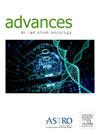癌症护理的保险事先授权负担:来自放射肿瘤学的证据综述。
IF 2.2
Q3 ONCOLOGY
引用次数: 0
摘要
目的:尽管具有很高的成本效益,但放射肿瘤学面临着任何医学专业中最大的事先授权(PA)负担。保险拒绝和由此导致的治疗延误已被记录在几种治疗方式中,包括立体定向体辐射、强度调制辐射和质子治疗。尽管保险公司表示,PA旨在控制医疗保健支出并确保循证实践的实施,但PA流程审查的导致改变的放射治疗计划数量相当低。然而,患者、医疗服务提供者和医疗保健系统的成本正在上升。处理上诉程序所需的行政工作增加,包括制定辐射计划比较,导致辐射工作人员的生产力下降,诊所费用增加,目前无法报销。PA导致的治疗延迟可能会增加患者的焦虑,影响他们参加临床试验的能力,导致护理质量下降。由于可能对患者造成伤害,医疗保险和医疗补助服务中心制定了一项规定,要求增加保险公司要求的透明度,减少达成PA决定的允许时间,并建立一个更有效的电子通信系统,以解决PA的时间和资源负担。方法和材料:本文总结了文献中的关键讨论,并提出了有助于减轻保险PA压力的建议。结果:这些建议广泛涉及以下关键领域:(1)常规护理和临床试验中PA的遗漏;(2)实施高效、简化的电子点对点通信;(3)增加保险要求和拒绝理由的透明度;(4)减少PA决策的时间允许。结论:政策改革的重点是循证驱动的治疗覆盖,减少需要PA的病例比例,以及简化、及时的保险申诉程序,以确保对需要放射治疗的患者提供最佳的癌症护理。本文章由计算机程序翻译,如有差异,请以英文原文为准。
The Burden of Insurance Prior Authorization on Cancer Care: A Review of Evidence From Radiation Oncology
Purpose
Despite its high cost-effectiveness, radiation oncology faces the greatest prior authorization (PA) burden of any medical specialty. Insurance denials and resulting treatment delays have been documented across several treatment modalities, including stereotactic body radiation, intensity modulated radiation, and proton therapy. Although insurance companies suggest that PA is intended to control health care spending and ensure the implementation of evidence-based practice, the number of radiation treatment plans reviewed by the PA process that result in changes is quite low. Yet, the cost to patients, providers, and the health care system is rising.
The increased administrative work required to address the appeal process, including the development of radiation plan comparisons, results in lost productivity of radiation staff and increased clinic costs that are not currently reimbursed. Treatment delays from PA may elevate patient anxiety and affect their ability to enroll in clinical trials, resulting in decreased quality of care. As a result of possible harm to patients, the Centers for Medicare and Medicaid Services developed a ruling that mandates increased transparency of insurers’ requirements, decreased allowable time for arriving at PA decisions, and a more efficient electronic communication system to address the time and resource burden of PA.
Methods and Materials
This article summarizes key discussions from the literature and provides recommendations to help mitigate insurance PA strain.
Results
These recommendations broadly address the following key areas: (1) omission of PA for routine care and clinical trials, (2) implementation of efficient, streamlined electronic peer-to-peer communication, (3) increased transparency of insurance requirements and rationale for denials, and (4) decreased time allowances for PA decisions.
Conclusions
Policy reform focused on evidence-driven treatment coverage, reduction of the proportion of cases requiring PA, and a simplified, timely insurance appeal process is necessary to ensure optimal cancer care for patients requiring radiation therapy as part of their cancer journey.
求助全文
通过发布文献求助,成功后即可免费获取论文全文。
去求助
来源期刊

Advances in Radiation Oncology
Medicine-Radiology, Nuclear Medicine and Imaging
CiteScore
4.60
自引率
4.30%
发文量
208
审稿时长
98 days
期刊介绍:
The purpose of Advances is to provide information for clinicians who use radiation therapy by publishing: Clinical trial reports and reanalyses. Basic science original reports. Manuscripts examining health services research, comparative and cost effectiveness research, and systematic reviews. Case reports documenting unusual problems and solutions. High quality multi and single institutional series, as well as other novel retrospective hypothesis generating series. Timely critical reviews on important topics in radiation oncology, such as side effects. Articles reporting the natural history of disease and patterns of failure, particularly as they relate to treatment volume delineation. Articles on safety and quality in radiation therapy. Essays on clinical experience. Articles on practice transformation in radiation oncology, in particular: Aspects of health policy that may impact the future practice of radiation oncology. How information technology, such as data analytics and systems innovations, will change radiation oncology practice. Articles on imaging as they relate to radiation therapy treatment.
 求助内容:
求助内容: 应助结果提醒方式:
应助结果提醒方式:


